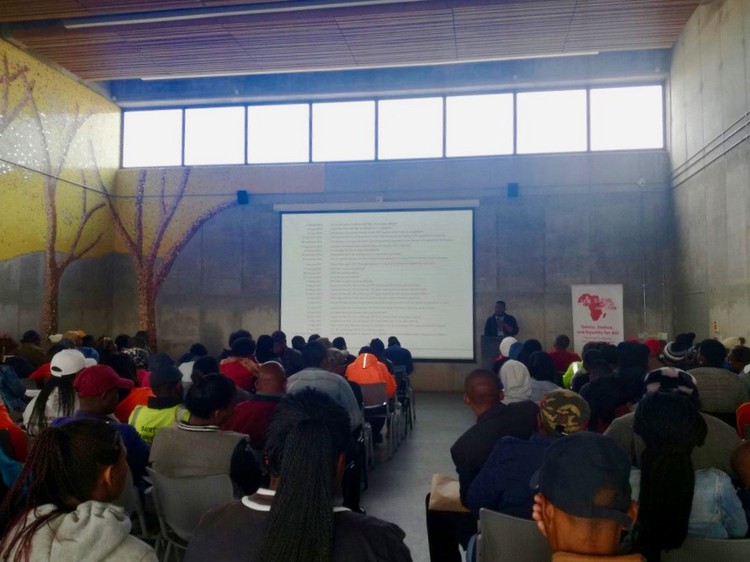Activists present stats on unequal policing
Areas with highest murder rates have fewer police resources, says SJC
On Wednesday, residents in Khayelitsha were updated on a court case brought against the South African Police Service (SAPS) on its allocation of resources. The Social Justice Coalition (SJC), Equal Education (EE) and the Nyanga Community Police Forum (CPF) brought the case.
It arises after a commission of inquiry into policing in Khayelitsha found that relatively fewer police resources are allocated to poor communities than wealthy ones, even though crime is higher in poor communities.
In a briefing session held at the Isivivana Centre in Khayelitsha, Dalli Weyers, senior researcher in the SJC’s Safety and Justice Programme, presented statistics that showed across the country that areas with the highest murder rates had fewer police resources.
“We are focusing on murder because there is a body when someone is murdered. We can know accurately when someone was murdered. It is a very reliable data source,” he said.
Head of the Safety and Justice Programme at the SJC, Chumile Sali, said they were pleased that they had finally managed to get statistics on police resources for all 1,140 police stations.
“We are happy because two years back, Ndifuna Ukwazi requested the statistics from SAPS and were told that they couldn’t receive them as they were privileged information,” said Sali. The figures, he said, “have proved to us that this is a national issue and not just in Khayelitsha; that this is a racial issue – wrong allocation of police resources in black communities across the country.”
EE Deputy General Secretary Ntuthuzo Ndzomo said, “Students do not feel safe inside school premises where they are supposed to feel safe … there is gang violence and robberies.” He said: “Just last year, we had robbers entering a school [in Khayelitsha] and taking the petty cash money. It took the police two hours to arrive at the scene.”
He said learners across the country do not get help from the police, but are faced with “unfruitful” investigations and lost dockets.
Welile Malaka from the community patrol in Site B Khayelitsha said, “People do not know how to hold the police accountable. They need to be told that they can complain when they are treated unfairly.”
“We have [security surveillance] cameras that do not work in my area [Site B]. We had someone who was shot … We asked the police to look who it was, and we were told they [the cameras] do not work,” said Malaka.
He said in another incident someone was robbed in the street and they were told the cameras were operated from Goodwood and that the police in Khayelitsha had no access to the video.
The case will be heard in the Equality Court on 17, 21 and 22 of August.
Support independent journalism
Donate using Payfast

Next: 300 beds added to Western Cape’s shelters over past three years
Previous: Brakpan gogo fires warning gunshots and blows whistle on electricity thieves
© 2017 GroundUp. 
This article is licensed under a Creative Commons Attribution-NoDerivatives 4.0 International License.
You may republish this article, so long as you credit the authors and GroundUp, and do not change the text. Please include a link back to the original article.

